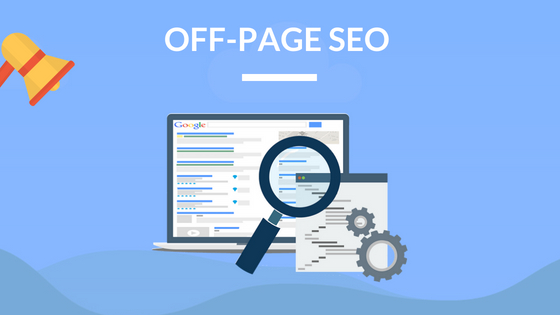
Key Takeaways
- Off-page optimization is a crucial component of SEO that involves activities outside your website to enhance ranking.
- Effective link-building strategies and leveraging social media can significantly improve your site’s authority and visibility.
- Using data and research to inform your approach can yield more impactful results.
- Balancing quality content with strategic off-page techniques can lead to sustained success in search rankings.
Table of Contents
- What is Off-Page Optimization?
- Importance of Link-Building
- Effective Social Media Strategies
- Leveraging Influencer Partnerships
- Content Marketing and Off-Page SEO
- Measuring Success
- Common Mistakes to Avoid
What is Off-Page Optimization?
Off-page optimization refers to all your activities outside your website to improve its search engine ranking. Unlike on-page SEO, which focuses on optimizing elements on your website, off-page SEO aims at building the site’s authority and reputation across the internet. Incorporating effective SEO services can provide the necessary boost needed to excel in this area. These strategies collectively present your website as a credible and authoritative source in your niche.
These activities involve acquiring backlinks from reputable sources, engaging on social media platforms, and collaborating with influencers. By doing so, you’re signaling to search engines that your website is valuable and trustworthy. Off-page optimization requires continuous effort, creativity, and strategic planning to craft an integrated approach that enhances your site’s overall presence on the web.
Importance of Link-Building
Link-building is a foundational aspect of off-page optimization. Acquiring backlinks from reputable websites signals to search engines that your site is trustworthy. Studies have shown a strong correlation between high-quality backlinks and higher search engine rankings. According to a comprehensive guide on SEO, quality links act as votes of confidence for your website.
Effective link-building strategies might include the following:
- Guest blogging.
- Publishing high-value content that others want to link to.
- Participating in relevant online forums or communities.
Tools like Ahrefs and Moz can help identify potential backlink opportunities by highlighting websites linking to similar content. The main objective is to earn links naturally, which will improve your site’s credibility.
Moreover, internal link-building shouldn’t be overlooked. Creating a robust internal linking structure helps distribute link equity throughout your site. It makes it easier for search engines to crawl and index your pages. Balancing internal and external link-building efforts is essential for a comprehensive SEO strategy.
Effective Social Media Strategies
Social media is an excellent platform to amplify your off-page optimization efforts. By sharing high-quality content and engaging with your audience, you can drive traffic to your website and enhance its online presence. Engaging on social platforms doesn’t just bring direct traffic but also indirectly boosts your SEO rankings. Social media activities can result in earning backlinks when users share your content on their profiles or blogs.
Consistency is key when leveraging social media. Regularly posting valuable content, responding to comments, and encouraging shares can significantly impact your SEO rankings. For actionable tips, check out this social media strategy article, which provides great recommendations. Use different content forms like videos, infographics, and interactive posts to capture audience interest and drive engagement.
Social media advertising can also be a cost-effective way to reach larger audiences. Paid campaigns can complement your organic strategies, bringing more attention to your content and boosting its likelihood of being linked to other sites. Utilize analytics tools provided by social media platforms to measure performance and continually optimize your strategy.
Leveraging Influencer Partnerships
Collaborating with influencers can significantly boost your off-page optimization. Influencers can help amplify your content to broader audiences, providing authenticity and authority to your brand. Being selective and ensuring alignment with your brand values is key to a successful partnership. Influencer marketing builds brand awareness and generates high-quality backlinks when influencers link to your site in their content.
Influencers have established trust with their followers, who value their recommendations. Influencer marketing improves your search engine optimization and draws in new readers when they share or link to your material. Consider micro-influencers as well; they may have smaller audiences but often enjoy higher engagement rates. Analyze potential influencers’ audience demographics to ensure they align with your target market.
Transparency is crucial in influencer partnerships. Clear communication regarding expectations and deliverables ensures a mutually beneficial relationship. Regularly evaluate the performance of these partnerships to ensure they continue to meet your SEO and brand objectives.
Content Marketing and Off-Page SEO
Content marketing and off-page SEO go hand in hand. Creating valuable, shareable content can naturally attract backlinks and social shares, boosting your site’s authority. Think about producing guest posts, infographics, or viral videos that align with your target audience’s interests. If your content speaks to your audience, it will probably be shared and linked to.
Engage your audience with different content types and be mindful of current trends. Utilize data-driven insights to refine your content strategy continually for better results. Tools like BuzzSumo can help identify trending topics and formats that work well in your niche. User-generated content can also be pivotal in your strategy, as it often generates social proof and organic backlink opportunities.
SEO-friendly content should be well-researched and provide real value to the reader. Incorporate keywords naturally, ensuring they fit contextually within the content. High-quality visuals and interactive elements can also enhance user experience and increase the likelihood of your content being shared and linked to.
Measuring Success
Tracking your off-page optimization success is crucial. Use tools like Google Analytics or SEMrush to monitor key metrics such as backlink count, domain authority, and social media engagement. Based on these insights, make data-driven adjustments to your strategy. Regular monitoring helps you identify which techniques yield results and which need tweaking.
Another great tool for monitoring your SEO performance is Google Search Console. It allows you to see your site’s visibility on Google, monitor incoming backlinks, and identify issues that may be impacting your rankings. Regularly reviewing these metrics helps identify what is working and what needs improvement.
Qualitative data such as user feedback and engagement rates should also be considered. These insights can provide context to the quantitative data and guide your strategic decisions. Tracking your results allows for continuous optimization and better decision-making.
Common Mistakes to Avoid
- Avoid black-hat SEO techniques like buying backlinks. These can result in severe search engine penalties, potentially damaging your site’s reputation long-term.
- Don’t neglect on-page SEO while focusing on off-page activities. Both are critical for a well-rounded strategy; neglecting one can undermine the effectiveness of the other.
- Ensure the backlinks you acquire are from relevant and reputable sources. Low-quality or irrelevant backlinks can harm your site’s credibility and ranking.
It is essential to stay updated with SEO best practices and avoid shortcuts that may harm your site’s reputation in the long run. Always aim for sustainable and ethical approaches to enhance your off-page optimization efforts. Regularly audit your backlinks to ensure they remain within SEO guidelines and contribute positively to your ranking.
Keep an eye for more news & updates on Well Known Figure!



